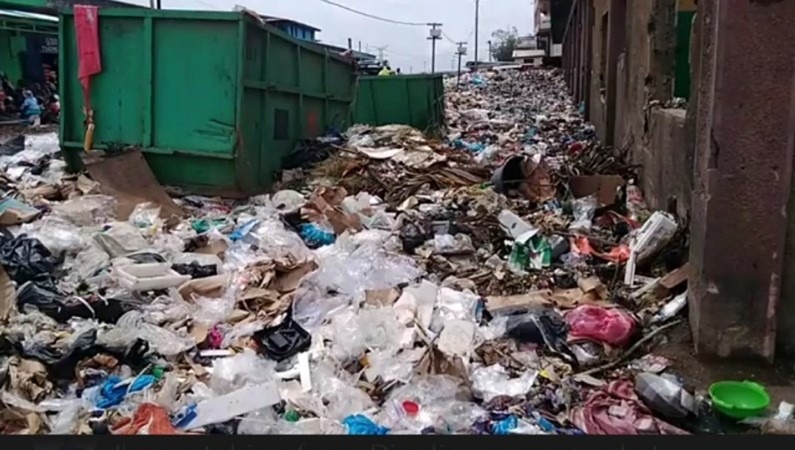Mayor Robert S. Bestman of Paynesville City, Liberia, has announced significant progress in waste management efforts, marking a crucial step towards transforming the city into a digitally advanced, smart city. Over an eight-month period, the Paynesville City Corporation (PCC) has overseen the removal of over 29,000 tons of waste, a figure representing a substantial portion of the accumulated garbage plaguing the city and its surrounding areas. This achievement reflects a dedicated commitment to improving sanitation and public health in Paynesville. The cleared areas include previously heavily polluted sites like the Goba-Chop stockpile, the LBS-ELWA Junction Community, the FDA Junction, the Jacob Town Football Field, Watch-Towel, the Police Academy dump, and the bustling commercial streets of Red Light, demonstrating the breadth and impact of the cleanup initiative.
A critical component of this success was addressing the fire-ravaged Whein Town Landfill, Monrovia’s primary waste disposal site. Mayor Bestman highlighted the substantial financial investment required to extinguish the fire and make the landfill operational again. With the landfill back in service, the PCC was able to significantly ramp up waste removal operations, leading to the reported removal of over 29,000 tons of waste from Paynesville. This signifies a major stride in tackling the long-standing sanitation challenges faced by the city, improving the living conditions for its over 700,000 residents.
Paynesville, a sprawling suburb east of Monrovia, encompasses 26 communities, including SKD Boulevard, AB Tolbert Road, ELWA, Parker Paint, Stephen Tolbert Estates, GSA Road, and the FDA Community, among others. Represented by five electoral districts (2, 3, 4, 5, and 6), the city had been grappling with an overwhelming accumulation of waste, including plastics, cans, bottles, discarded clothing, and other refuse. This pervasive pollution hampered sanitation efforts and posed a significant threat to public health and the environment. The Mayor’s report indicates a turning point in this struggle, offering hope for a cleaner and healthier Paynesville.
While celebrating the progress made, Mayor Bestman acknowledged the considerable work that remains. He emphasized the ongoing nature of the cleanup initiative and the need for sustained efforts to maintain the improvements and further enhance the city’s sanitation infrastructure. The ambitious goal of transforming Paynesville into a “smart city” is central to the Mayor’s vision. This entails leveraging digitalization and technology to improve city services and governance, reflecting a forward-thinking approach to urban development.
The Mayor also outlined the PCC’s progress in implementing digitalization programs across various departments. A key focus is the automation of human resource and finance operations, with full digitalization expected by January of the following year. This modernization effort includes the implementation of automated business registration and the equipping of financial agents with tablets for field work. These technological advancements are intended to streamline processes, improve efficiency, and enhance transparency within the city’s administration.
However, these ambitious plans are constrained by significant financial limitations. Mayor Bestman stressed the dire need for increased budgetary allocation to support the city’s operations. He cited challenges such as a limited workforce, a lack of essential equipment, and inadequate logistical support as major obstacles hindering the PCC’s effectiveness. The Mayor’s plea underscores the importance of adequate resources in achieving the city’s development goals and maintaining the momentum of the ongoing cleanup and modernization efforts. The successful transformation of Paynesville into a clean and technologically advanced smart city hinges on securing the necessary financial backing to support these critical initiatives.


